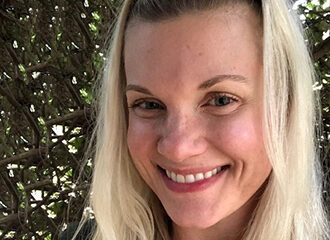Written By: Sarah Bateman, LCSW
The Renfrew Center’s Liaison to the Jewish Community
Eating disorder treatment affects everyone differently. Some focus on rebuilding their lives, learn to manage challenges in different ways, or find new ways to keep busy. Others may feel they have too many things to juggle every day, and struggle with feelings of stress and unease. Some experience all of it at the same time.
There can be so many obligations, feelings, urges, and thoughts to manage and process on a regular day. When we are trying to nourish our bodies, ignore diet culture, and disregard negative messages, while also trying to sit with urges or challenge our thinking traps, the entire process can be overwhelming. There might even be moments when we feel defeated.
The Power of Small Wins
What if we could give that same power to our accomplishments? What if we could celebrate every small win as part of the path to “winning” at recovery, and that every time we take care of ourselves in a small way, we could celebrate the achievement of self-care?
It’s easy to beat ourselves up for making a mistake, using a symptom, or having a setback. To see a small regression as a huge failure. The purpose of this blog post is to show you how recognizing and acknowledging a small win can make a huge difference.
Examples of Small Wins
The great thing about small wins is that they often feel bigger to those achieving them. Here are some common examples that represent significant steps forward.
- Eating a complete meal
- Eating a fear food
- Trying a new food
- Listening to hunger cues
- Reaching out to a support person
- Registering for an alumni event
- Joining a recovery webinar
- Labeling an emotion
- Signing up for a support group
- Listening to an inspiring podcast episode
- Attending a therapy session (showing up!)
 A Real-Life Example
A Real-Life Example
I recently had a session with a young woman I work with whom I’ll call Serena. Serena told me that she was about to make herself dinner when her mom came in and she ended up getting into an argument with her.
Serena has been in treatment for several years and has learned the importance of feeding herself, listening to her own needs, and communicating with others. Getting into a disagreement with her mom right when she was already feeling stressed about making herself food made her want to give up, stop preparing, and skip dinner altogether.
However, Serena told me that she ended up making herself food and eating dinner that night anyway. She felt bad that it was not a full meal, but she said she woke up the next day and had a full breakfast. Eating anything at all that night was a (huge) small win for Serena that helped her stay on track in her recovery and maintain her progress. Serena was able to recognize her win and give herself credit.
The Importance of Self-Credit
It is so important to acknowledge when we overcome our challenges or meet our goals. Setting small, concrete, doable goals along the way can help give us that feeling of accomplishment and motivate us to keep going. I often recommend making lists, especially when feeling stressed or overwhelmed, and starting the list with the items you’ve already completed or goals you’ve already met. Giving ourselves credit for what we’ve done can help encourage us to face what we need to do. And when we allow ourselves to celebrate completed tasks, we build confidence for overcoming difficult experiences and achieving goals in the future.
Journaling can be another great way to stay on track, reflect on your progress, and give yourself credit for your hard work. It can also be helpful to share progress with friends, family, and supporters. Sometimes we need reassurance or reminders of what we know, and others can often acknowledge our positives for us when we aren’t able to for ourselves.
Handling Setbacks
It is important to also note that while we want to be able to celebrate small wins, setbacks are normal and are also part of the recovery process. On the flip side of being able to give ourselves credit for our accomplishments, we also need to remember to not beat ourselves up when we make a mistake. Some days we are stronger than others, some days meeting our goals is easier, and some days every little thing can feel like too much. On days like that we often need to just rest and give ourselves compassion.
Listening to ourselves when we need a break can also be a win. Remember that a lapse is not a relapse. You can get back on track with your goals and your progress even after a setback. It can also be helpful to recognize challenges as opportunities; rather than feeling like you failed, see how you can learn and grow.
Remember to also utilize your treatment team and know that everyone needs support. Your treatment team can offer a sensible reality check, remind you of your skills, and point out your accomplishments. When Serena called me that day, I was able to celebrate her small (big!) win with her and remind her that she knows how to listen to her own inner voice. Everyone deserves supporters to help them through this difficult process.
Conclusion
As you continue your recovery journey, try to recognize and give yourself credit for every small win along the way. We often must try harder to notice our positive accomplishments or even hear the positive voices in our heads, while the critical voices, unfortunately, can be louder. But each small win is a huge step and a huge accomplishment. I encourage each of you to try to think about how much you’ve already done, how much you can do, and how every small win is a reminder that you are strong and that you can beat your eating disorder.

 A Real-Life Example
A Real-Life Example

